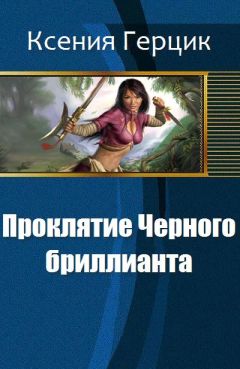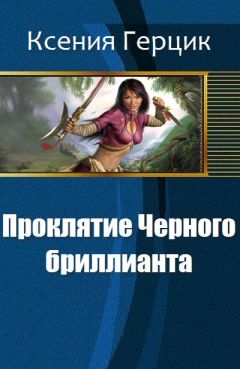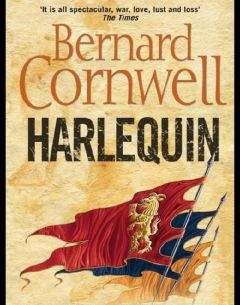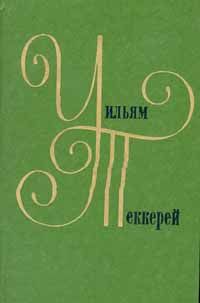Bernard Cornwell - The Grail Quest 2 - Vagabond
He was next aware of a trumpet calling. The cart had stopped and he heard the flapping of cloth and looked up and saw that one of the horsemen was waving a white banner. Thomas wondered if it was his winding sheet. They wrapped a baby when it came into the world and they wrapped a corpse when it went out and he sobbed because he did not want to be buried, and then he heard English voices and he knew he was dreaming as strong hands lifted him from the remnants of dung. He wanted to scream, but he was too weak, and then all sense left him and he was unconscious.
When he woke it was dark and he was in another
cart, a clean one this time, and there were blankets over him and a straw mattress beneath him. The cart had a leather cover on wooden half-hoops to keep out the rain and sunlight. 'Will you bury me now?' Thomas asked.
'You're talking nonsense,' a man said and Thomas recognized Robbie's voice.
'Robbie?'
'Aye, it's me.'
'Robbie?'
'You poor bastard,' Robbie said and stroked Thomas's forehead. 'You poor, poor bastard.'
'Where am I?'
'You're going home, Thomas,' Robbie said, 'you're going home.'
To La Roche-Derrien.
He had been ransomed. A week after his disappearance and two days after the rest of the raiding party had returned to La Roche-Derrien a messenger had come to the garrison under a flag of truce. He brought a letter from Bernard de Taillebourg that was addressed to Sir William Skeat. Surrender Father Ralph's book, the letter said, and Thomas of Hookton will be delivered back to his friends. Will Skeat had the message translated and read to him, but he knew nothing of any book so he asked Sir Guillaume if he had any idea what the priest wanted and Sir Guillaume spoke to Robbie who, in turn, talked to Jeanette and next day an answer went back to Roncelets.
Then there was a fortnight's delay because Brother Germain had to be fetched from Normandy to Rennes.
De Taillebourg insisted on that precaution because Brother Germain had seen the book and he could con-firm that what was exchanged for Thomas was indeed Father Ralph's notebook.
'And so it was,' Robbie said.
Thomas stared up at the ceiling. He vaguely felt it had been wrong to exchange him for the book, even if he was grateful to be alive, to be home and among his friends.
'It was the right book,' Robbie went on with indecent relish, 'but we added some stuff to it.' He grinned at Thomas. 'We copied it all out first, of course, and then we added some rubbish to mislead them. To confuse them, see? And that shrivelled old monk never noticed. He just pawed at the book like a starving dog given a bone.'
Thomas shuddered. He felt as if he had been stripped of pride, strength and even manhood. He had been utterly humiliated, reduced to a shivering, whining, twitching thing. Tears ran down his face though he made no sound. His hands hurt, his body hurt, everything hurt. He did not even know where he was, only that he had been brought back to La Roche-Derrien and carried up a steep flight of stairs to this small chamber under a roof's steep rafters where the walls were roughly plastered and a crucifix hung at the head of the bed. A window screened with opaque horn let in a dirty brown light. Robbie went on telling him about the false entries they had added to Father Ralph's book. It had been his idea, he said, and Jeanette had copied out the book first, but after that Robbie had let his imagination run wild. 'I put some of it in Scots,' he boasted, 'how the Grail is really in Scotland. Have the bastards searching the heather, eh?' He laughed, but could see that Thomas was not listening. He went on talking anyway, and then another person came into the room and wiped the tears from Thomas's face. It was Jeanette.
Vagabond_part1.fm
'Thomas?' she asked, 'Thomas?'
He wanted to tell her that he had seen and spoken to her son, but he could not find the words. Guy Vexille had said Thomas would want to die while he was being tortured and that had been true, but Thomas was sur-prised to find it was still true. Take a man's pride, he thought, and you leave him with nothing. The worst memory was not the pain, nor the humiliation of begging for the pain to stop, but the gratitude he had felt towards de Taillebourg when the pain did stop. That was the most shameful thing of all.
'Thomas?' Jeanette asked again. She knelt by the bed and stroked his face. 'It's all right,' she said softly, 'you're safe now. This is my house. No one will hurt you here.'
'I might,' a new voice said and Thomas shook with fear, then turned to see that it was Mordecai who had spoken. Mordecai? The old doctor was supposed some-where in the
«arm south. 'I might have to reset your finger and toe bones,' the doctor said, 'and that will be painful.' He put his bag on the floor. 'Hello, Thomas. I do hate boats. We waited for the new sail and then when they'd finished sewing it up they decided there wasn't enough caulking between the planks and when that was corrected they decided the rigging needed work and so the wretched boat is still sitting there. Sailors! All they ever do is talk about going to sea. Still, I shouldn't complain, it gave me the time to concoct some new material for your father's notebook and I rather enjoyed doing that! Now I hear you need me. My dear Thomas, what have they done to you?'
'Hurt me,' Thomas said and they were the first words he had spoken since he had come to Jeanette's house.
'Then we must mend you,' Mordecai said very calmly. He peeled the blanket back from Thomas's scarred body and, though Jeanette flinched, Mordecai just smiled. 'I've seen worse come from the Dominicans,' he said, 'much worse.'
So Thomas was again tended by Mordecai and time was measured by the clouds passing beyond the opaque window and the sun climbing ever higher in the sky and the noise of birds plucking straw from the thatch to make their nests. There were two days of awful pain when Mordecai brought a bone-setter to rebreak and splint Thomas's fingers and toes, but that pain went after a week and the burns on his body healed and the fever passed. Day after day Mordecai peered at his urine and declared it was clearing. 'You have the strength of an ox, young Thomas.'
'I have the stupidity of one,' Thomas said.
'Just brashness,' Mordecai said, 'just youth and brashness.'
'When they . . .' Thomas began and flinched from remembering what de Taillebourg had done. 'When they talked to me,' he said instead, 'I told them you had seen the notebook.'
'They can't have liked that,' Mordecai said. He had taken a spool of cord from a pocket of his gown and now looped one end of the line around a spur of wood that protruded from an untrimmed rafter. 'They can't have liked the thought of a Jew being curious about the Grail. They doubtless thought I wanted to use it as a pisspot?'
Thomas, despite the impiety, smiled. 'I'm sorry, Mordecai.'
'For telling them about me? What choice did you have? Men always talk under torture, Thomas, that is why torture is so useful. It is why torture will be used so long as the sun goes on circling the earth. And you think I am in more danger now than I was? I'm Jewish, Thomas, Jewish. Now, what do I do with this?' He was speaking of the cord, which now hung from the rafter and which he evidently wished to attach to the floor, but there was no obvious anchor point.
'What is it?' Thomas asked.
'A remedy,' Mordecai said, staring helplessly at the cord, then at the floor. 'I was ever unpractical with matters like this. A hammer and nail, you think?'
'A staple.' Thomas suggested.
Jeanette's idiot servant boy was sent out with careful instructions and managed to find the staple that Mordecai asked Thomas to hammer into the floorboard, but Thomas held up his crooked right hand with its fingers bent like claws and said he could not do it, so Mordecai clumsily banged the staple in himself and then tightened the cord and tied it off so that it stretched taut from floor to ceiling. ''hat you must do,' he said, admiring his handiwork, 'is pluck it like a bowcord.'
'I can't,' Thomas said in panic, holding up his crooked hands again.
'What are you?' Mordecai asked.
'What am I?'
'Ignore the specious answers. I know you're an
Englishman and I assume you're a Christian, but what are you?'
'I was an archer,' Thomas said bitterly.
'And you still are,' Mordecai said harshly, 'and if you are not an archer then you are nothing. So pluck that cord! And keep on plucking it until your fingers can close on it. Practise. Practise. What else do you have to do with your time?'
So Thomas practised and after a week he could tighten two fingers opposite the thumb and make the cord reverberate like a harp string, and after another week he could bend the fingers of both hands about the cord and he plucked it so vigorously that it finally broke under the strain. His strength was coming back and the burns had healed to leave puckered welts where the poker had scored his skin, but the wounds in his memory did not heal. He would not talk of what had been done to him for he did not want to remember it, instead he practised plucking the cord until it snapped and then he learned to grip a quarterstaff and fought mock battles in the house yard with Robbie. And, as the days had lengthened out of winter, he went for walks beyond the town. There was a windmill on a slight hill that lay not far from the town's eastern gate and at first he could hardly manage the climb because his toes had been broken in the vice and his feet felt like unyielding lumps, but by the time April had filled the meadows with cowslips he was walking confidently. Will Skeat often went with him and though the older man never said much his company was easy. If he did talk it was to grumble about the weather or complain because the food was strange or, more likely, because he had heard nothing from the Earl of Northampton.
'You think we should write to his lordship again, Tom?'
'Maybe the first letter didn't reach him?'
'I never did like things written down,' Skeat said, 'it ain't natural. Can you write to him?'
'I can try,' Thomas said, but though he could pluck a bowcord and hold a quarterstaff or even a sword he could not manage the quill. He tried but his letters were scratchy and uncontrolled and in the end one of Tote-sham's clerks wrote the letter, though Totesham himself did not think the message would do any good.
'Charles of Blois will be here before we get any reinforcements,' he said. Totesham was awkward with Thomas, who had disobeyed him by riding to Roncelets, but Thomas's punishment had been far more than Tote-sham would have wanted and so he felt sorry for the archer. 'You want to carry_ the letter to the Earl?' he asked Thomas. Thomas knew he was being offered an escape, but he shook his head. 'I'll stay,' he said, and the letter was entrusted to a shipmaster who was sailing the next day. The letter was a futile gesture and Totesham knew it for his garrison was almost certainly doomed. Each day brought news of the reinforcements reaching Charles of Blois, and the enemy's raiding parties were now coming within sight of La Roche-Derrien's walls and harassing the forage parties that searched the countryside for any cattle, goats and sheep that could be driven back to the town to be slaughtered and salted down. Sir Guillaume enjoyed such foraging raids. Since losing Evecque he had become fatalistic and so savage that already the enemy had learned to be wary of the blue jupon with its three yellow hawks. Yet one evening, coming home from a long day that had yielded only two goats, he was grinning when he came to see Thomas. 'My enemy has joined Charles,' he said, 'the Count of Coutances, God damn his rotten soul. I killed one of his men this morning and I only wish it had been the Count himself.'
'Why's he here?' Thomas asked. 'He's not a Breton.'
'Philip of France is sending men to help his nephew,' Sir Guillaume said, 'so why won't the King of England send men to oppose him? He thinks Calais is more important?'
'Yes.'
'Calais,' Sir Guillaume said in disgust, 'is the arsehole of France.' He picked a shred of meat from between his teeth. 'And your friends were out riding today,' he went on.
'My friends?'
'The wasps.'
'Roncelets,' Thomas said.
'We fought half a dozen of the bastards in some benighted village,' Sir Guillaume said,
'and I put a lance clean through a black and yellow belly. He was cough-ing afterwards.'
'Coughing?'
'It's the wet weather, Thomas,' Sir Guillaume explained, 'it gives men a cough. So I left him alone, killed another of the bastards, then event back and cured his cough. I cut his head off.'
Robbie rode with Sir Guillaume and, like him, amassed coins taken from dead enemy patrols. though Robbie also rode in hope of meeting Guy Vexille. He knew that name now because Thomas had told him that it was Guy Vexille who had killed his brother just before the battle outside Durham and Robbie had gone to St Renan's church, put his hand on the altar's cross and sworn revenge. 'I shall kill Guy Vexille and de Taillebourg,' he vowed.
'They're mine,' Thomas insisted.
'Not if I get to them first,' Robbie promised.
Robbie had found himself a brown-eyed Breton girl called Oana who hated to leave his side and she came with him whenever he walked with Thomas. One day, as they set out for the windmill, she appeared with Thomas's big black bow.
'I can't use that!' Thomas said, frightened of it.
'Then what bloody use are you?' Robbie asked and he patiently encouraged Thomas to draw the bow and praised him as his strength returned. The three of them would take the bow to the windmill and Thomas would drive arrows into the wooden tower. The shots were feeble at first for he could scarcely pull the cord halfway and the more power he exerted the more treacherous his fingers seemed to be and the more wayward his aim, but by the time the swallows and swifts had magically reappeared above the town's roofs he could pull the cord all the way back to his ear and put an arrow through one of Oana's wooden bracelets at a hundred paces.
'You're cured,' Mordecai told him when Thomas told him that news.
'Thanks to you,' Thomas said, though he knew it was not only Mordecai, any more than it was the friendship of Will Skeat or of Sir Guillaume or of Robbie Douglas that had helped him recover. Bernard de Taillebourg had wounded Thomas, but those bloodless wounds of God had not just been to his body, but to his soul, and it was on a dark spring night when the lightning was flickering in the east that Jeanette had climbed to her attic. She had not left Thomas until the town's cockerels greeted the new dawn and if Mordecai understood why Thomas was smiling the next day he said nothing, but he noted that from that moment on Thomas's recovery was swift.
Thereafter Thomas and Jeanette talked every night. He told her of Charles and of the look on the boy's face when Thomas had mentioned his mother; Jeanette wanted to know everything about that look and she worried that it meant nothing and that her son had forgotten her, but eventually she believed Thomas when he said the boy had almost wept when he heard news of her. 'You told him I loved him?' she asked.
'Yes,' Thomas said, and Jeanette lay silent, tears in her eyes, and Thomas tried to reassure her, but she shook her head as if there was nothing Thomas could say that would console her. 'I'm sorry,' he said.




